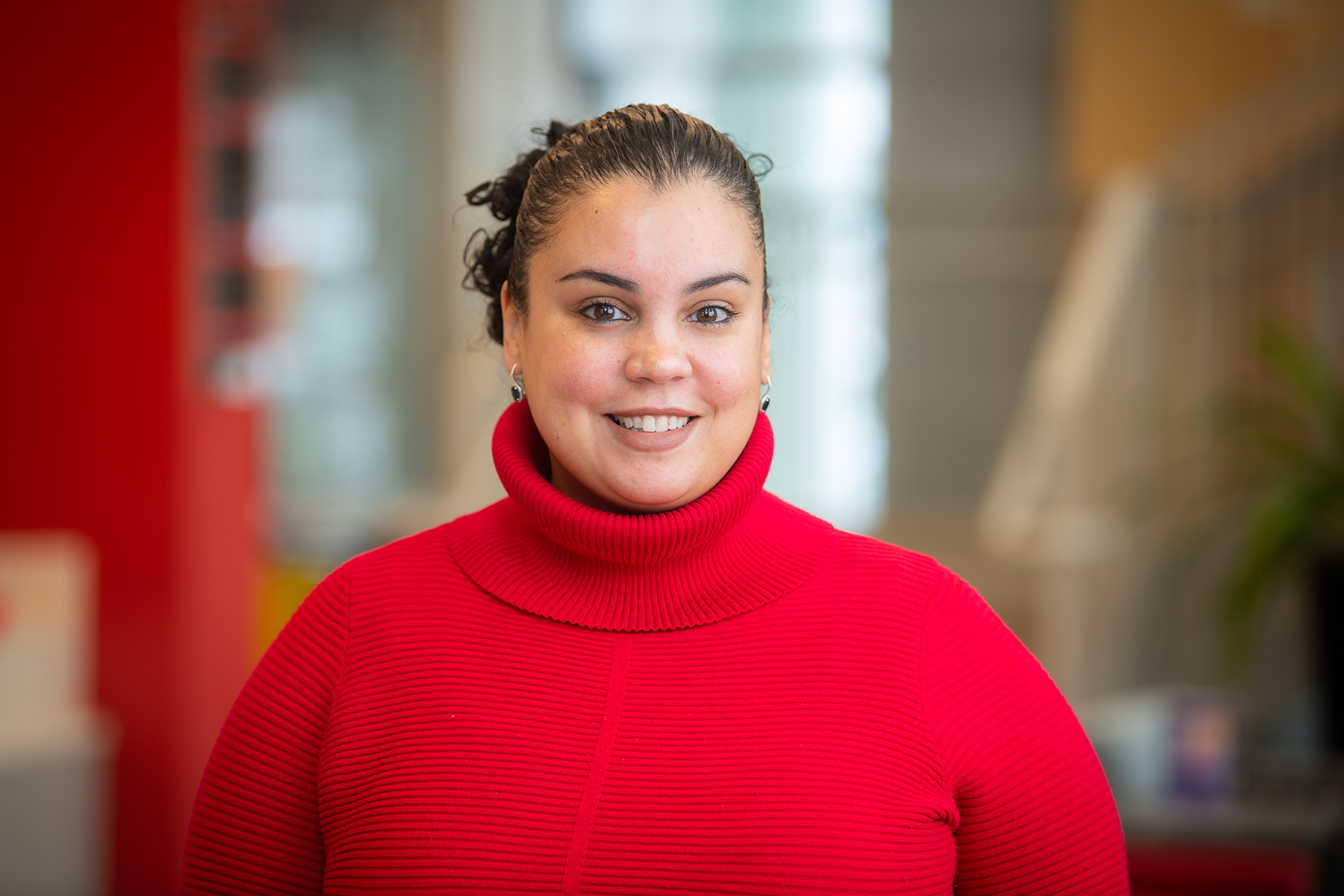‘We are here to walk the path with our students’

Melisa Alves entered college convinced her destiny was to become a doctor.
Chemistry had other ideas.
“I realized pretty quickly that chemistry wasn’t my thing,” she laughs. “I think part of my ambition was shaped by my parents’ experiences and expectations as immigrants — and as the parents of a first-generation college student — who believed that success meant being a doctor or a lawyer.”
Instead, Alves took time to reexamine and recalibrate her passions and aspirations and, with the help of mentors, found opportunities in higher education that now empower her to help students navigate their own career paths. After holding associate director and director-level positions in career development and advising at Holy Cross, Fitchburg State University, and, most recently, Worcester State University, Alves joined Clark University in January as associate dean/executive director of career planning in the Career Connections Center.
She’s excited about the transition to Clark, an institution with which she is very familiar as someone who moved to Worcester with her family when she was 11 and grew up in the city that she calls home. “I was immersed in the community, because it’s my community,” she says. “When I was a student at Holy Cross, I brought my friends into the community because they weren’t sure where to go.”
Alves began her career working in residential life at Fairfield University before transitioning into multicultural education and then career services at her alma mater, Holy Cross, finding the latter a perfect match for her interests. “I loved it right away,” says Alves, who earned her master’s degree from Springfield College and her doctorate in higher education administration from UMass Boston.
“From the beginning, I’ve enjoyed seeing students come into Career Services, helping them discern what they want to do in college and in their career, then building bridges to alumni and employers who can provide them those valuable experiences,” Alves says. “I love to see students progress through the years, gaining confidence, knowledge and developing new skills.”
Her time at state universities exposed her to a diverse population of students who were intensely focused on social mobility, often a common motivator for first-generation students and students from challenging socioeconomic backgrounds, she says. At Clark, Alves admires the vibrant spirit of social activism across campus as well as the range of intellectual and academic passions found among Clarkies.
“The work we do at the CCC has to be individualized, because every student has a unique path,” Alves says. “On a broader scale, we’re looking at areas we may need to change, and the opportunities we may want to expand. There is so much happening at Clark, which is wonderful. We’re thinking not only of the work we’re doing here in the office, but also how we can make sure that we’re collaborating with people in other areas who are doing similar work.
“One of my biggest goals is to establish strong connections with faculty so they are comfortable referring students to us knowing they’ll get the support they need. Faculty play a pivotal role in supporting student exploration. My hope is we can work together to connect students to opportunities that will bridge students’ academic pursuits with their career goals.”
The Career Connections Center offers a range of services, from facilitating internships and networking with employers and alumni career professionals, to providing training in résumé construction, interviewing skills, and effective job search. “Students do not have to go on their career exploration journey on their own,” Alves says. “We are here to walk that path together with them.
Alves is keen on encouraging students to engage with career services earlier in their college experience, especially students from marginalized identities. “Our identities definitely shape some of the decisions we make around our career — that may include personal identity, but also our Clark identity, which also impacts those decisions.”
She wants the experience of preparing for a future of work not be anxiety-inducing, noting that some students carry difficult memories of the 2008 recession, including job loss within their families. The stakes of shaping a stable career can feel amplified for those who have endured hard times.
“I’m hearing from students that the concept of ‘career’ can feel heavy and intimidating,” Alves says. “And it’s true that a career is coming, whether you’re ready for it or not. So how do we make this experience less stressful, and have students understand that it’s about the little decisions you make along the way that contribute to the career-exploration process? We want to get students involved earlier, and do it in a way that is fun and engaging and eliminates some of that fear.”
The creation of Career Communities will provide an opportunity for students to engage in friendly, accessible career-related spaces that will involve networking and relationship-building with industry experts and alumni in various professional and academic areas. The communities now being formed will allow students to investigate a broad array of interests, then perhaps narrow their participation to one or two communities over time as they advance and refine their career search. The Career Communities initiative is expected to launch in the fall.
Alves notes that Career Communities exemplify the ethos of a liberal arts education “that encourages you to be open to different worlds, different perspectives, and different opportunities.”
And to be confident in the knowledge that a career journey can take some unexpected detours, but the destination always awaits.


